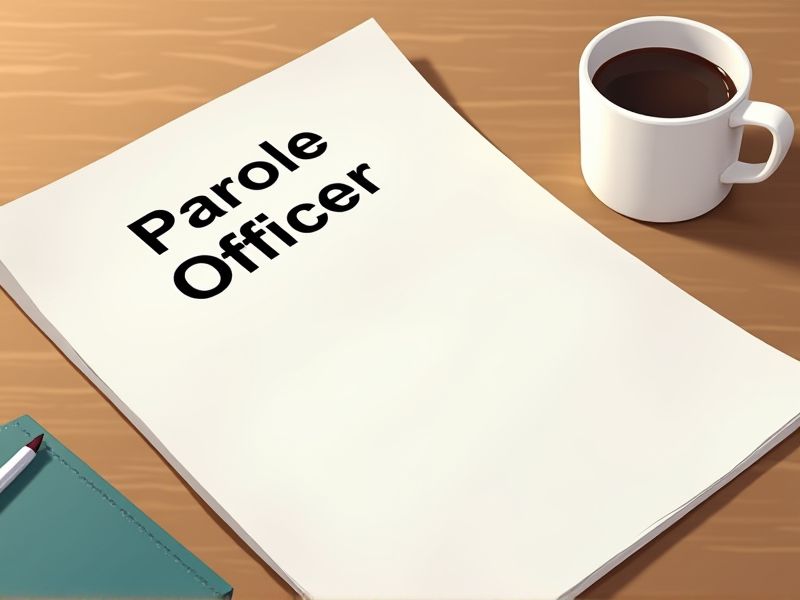
Parole officers play a crucial role in the criminal justice system by supervising offenders released from incarceration. Ensuring they possess specific certifications guarantees they have the necessary skills to manage diverse and often challenging situations. Certification programs offer knowledge in legal procedures, crisis intervention, and offender rehabilitation strategies. Here are some important certifications you may need as a Parole Officer.
Certified Corrections Professional (CCP)
The Certified Corrections Professional (CCP) credential ensures that a parole officer possesses the necessary competencies and knowledge standardized across the corrections field. Holding a CCP certification can enhance credibility and trust with both colleagues and clients, reflecting a commitment to professional excellence. Due to evolving societal and legal standards, parole officers with CCP certification are better prepared to implement evidence-based practices in their work. Certification might lead to career advancement opportunities, as it often aligns with agency goals to maintain a skilled and well-qualified workforce.
Certified Probation Officer (CPO)
Parole officers are responsible for supervising formerly incarcerated individuals, and a Certified Probation Officer (CPO) enhances their ability to enforce legal guidelines effectively. Certification equips parole officers with specialized training to assess risks and needs, leading to better decision-making in managing parolees. Having a CPO fosters trust within the justice system by ensuring adherence to legal and ethical standards. A CPO's expertise in conflict resolution and behavior modification contributes to reducing recidivism rates.
Crisis Intervention Certification
Parole officers face situations that can quickly escalate, requiring de-escalation skills that Crisis Intervention Certification provides. The certification equips them with tools to effectively manage mental health crises, common among parolees. Better crisis management by parole officers leads to improved safety for both officers and parolees. The certification enhances the officer's ability to connect paroles with appropriate support services, reducing recidivism rates.
Mental Health First Aid Certification
Parole officers often encounter individuals dealing with mental health challenges, increasing the need for effective intervention skills. Mental Health First Aid Certification equips parole officers with the ability to recognize early signs of mental health issues. Such training can lead to de-escalation of potential crises, reducing the risk of harm. It also fosters a supportive environment conducive to better rehabilitation and reintegration outcomes.
Defensive Tactics Certification
Defensive Tactics Certification equips parole officers with essential skills to protect themselves in potentially dangerous situations. This certification increases their ability to manage high-risk encounters without escalating violence. Training enhances officers' confidence, which can lead to more effective decision-making during critical incidents. Agencies often require this certification to ensure standardized practices across the board, reducing liability and improving officer safety.
Use of Force Training Certification
Parole officers often interact with individuals who may exhibit unpredictable behavior, increasing the likelihood of confrontational situations. Use of Force Training Certification equips parole officers with techniques to manage these situations effectively and safely. Proper training minimizes the risk of harm to both the officer and the parolee, promoting a safer working environment. Legal accountability is heightened, as certified training ensures officers adhere to established protocols and guidelines, reducing potential liabilities.
Ethics in Corrections Certification
Ethics in Corrections Certification equips parole officers with the framework for making decisions that uphold justice and integrity. Parole officers face complex situations where ethical dilemmas can arise, and certification ensures they're prepared to handle these challenges responsibly. A strong ethical foundation builds trust among parolees, the community, and the correctional system. Recurring ethical training reinforces accountability, reducing the potential for misconduct and improving overall rehabilitation outcomes.
Cultural Competency Certification
Cultural competency certification equips parole officers with the understanding necessary to interact effectively with diverse populations. Enhanced cultural awareness reduces miscommunication and fosters trust between parole officers and those under supervision. This certification can lead to more equitable enforcement practices, reducing potential biases in decision-making. By being culturally informed, parole officers can better tailor rehabilitation strategies, facilitating successful reintegration into society.
Correctional Law Certification
Correctional Law Certification equips parole officers with a comprehensive understanding of the legal framework that governs their duties, enhancing their ability to ensure compliance with laws. This certification serves to reduce legal liabilities by ensuring officers are well-versed in judicial decisions that affect parole practices. With formal training, parole officers can effectively navigate complex legal scenarios, positively impacting their decision-making processes. Certification fosters professional credibility and trust, which can improve relationships with both parolees and the judicial system.
Risk Assessment and Management Certification
Parole officers regularly manage individuals who pose varying levels of risk to society; a Risk Assessment and Management Certification equips them with the skills to evaluate threats effectively. Comprehensive training in risk management enables officers to develop tailored intervention plans, reducing the chance of recidivism. Such certification provides a structured methodology for identifying potential dangers and making data-driven decisions that prioritize public safety. A standardized approach ensures that officers can consistently apply best practices across diverse cases, fostering improved outcomes.
Summary
You gain enhanced credibility and trust from parolees when you earn certifications as a Parole Officer. Certifications can lead to improved rehabilitation outcomes, as they often provide advanced skills in communication, counseling, and conflict resolution. You may experience increased opportunities for career advancement and specialization within the criminal justice field. Acquiring certifications also strengthens your ability to make data-driven decisions, contributing to more effective parole supervision.
